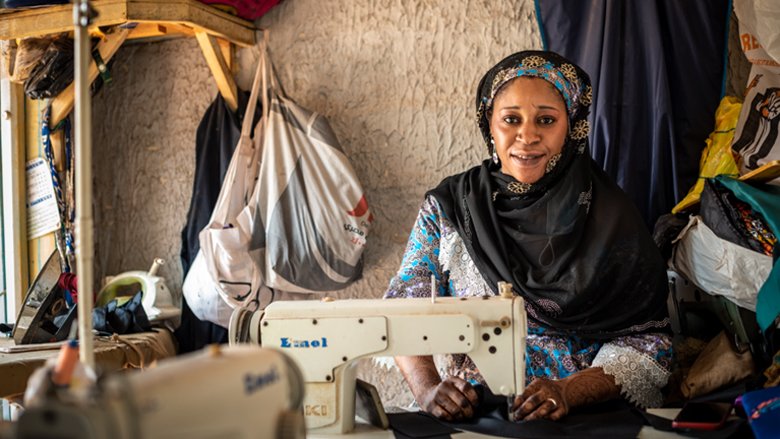YAOUNDE, Cameroon, March 17, 2022 - Fadimatou Garba is 31 years old and lives in Yaounde. She is a widow and mother of four children. Her husband, who was the sole provider of the family, passed away five years ago. At only 26 she became the head of the family and struggled to put at least a meal on the table for her children. Married at a very young age, with no degrees, her family’s future looked very dark.
Like Fadimatou’s family, having more than a meal per day is a luxury for many Cameroonians. With no national social protection strategy (including safety nets) in Cameroon and no coordinated mechanisms for providing targeted support to the poor, introducing a Social Safety operation in 2004 helped the country in its strategy of tackling poverty and having an efficient social protection system.
The Social Safety Net project gives hope to poor and vulnerable households, such as Fadimatou’s, across the country. It provides beneficiaries with either cash transfers or temporary public works employment to give them a hand during challenging times and help them lift themselves out of poverty.
“I was so happy to learn that I was selected as a beneficiary, this changed my life. The only thing I could do and knew how to do was sewing, says Fadimatou. So, with the money received for the cash transfer between 2017 and 2019, I first started sewing at home and the following year was able to rent a small space at the Briquetterie market and opened a sewing workshop. Covid-19 slowed down the business, but, today, customers are coming back, and I am able to send my children to school and support other orphans in the neighborhood too.”


